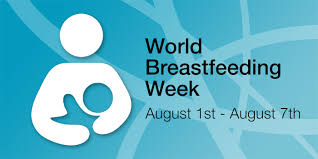World Breastfeeding Week: What Is The Best Diet For A Lactating Mother?

Did you know that August 1 to 7 is observed as World Breastfeeding Week every year? Everyone knows how important breastfeeding is both for infants and the mother. Lactating mothers need to take care of themselves as the child depends on her for their share of nutrition. According to paediatricians, the infant must only be fed only on breast milk for the first six months after birth.
According to UNICEF, out of the 800 women who die every day of preventable causes related to pregnancy and childbirth globally, 20 per cent are from India. Uttar Pradesh is the poorest performer in terms of neglecting the health of pregnant ladies. It is thus very important that lactating mothers first take care of themselves, fill up the necessary nutrition required and then pass it on to their babies.
Lactating mothers require extra nutrients to boost milk supply and also to accelerate post-partum recovery. Women who breastfeed, require approximately 500 additional kilocalories per day beyond what is recommended for non-pregnant women. Since the mother is the only source of nutrition to the baby, she should consume a variety of nutrients like iron, calcium and so on.
Increase the intake of proteins
Increasing protein in your diet should be the first thing to do. Eat green leafy vegetables, lean meat, seafood and fish like salmon, seaweed etc. A breastfeeding mother requires an additional 25 grams of protein in her daily diet.
Say yes to calcium
Calcium is what will make your child’s bones and muscles stronger. Moreover, a nursing mother loses about 3% to 5% of bone mass which can be a cause of bone disorders like osteoporosis. Milk, ghee, buttermilk, yoghurt, sunflower seeds, quinoa, ragi, chickpeas, and cottage cheese must be added to a mother’s diet to ensure that her calcium intake is adequate.
Start consuming galactagogues
Grandmothers would swear on this. One of the most important parts of a nursing mother’s diet, Galactagogues are known to stimulate breast milk supply and increase its production. Mothers are advised to consume products that are rich in galactagogues such as whole grains like oats, barley, dark green leafy vegetables, fennel seeds, garlic, fenugreek seeds, chickpeas, ginger, papaya, nuts, and seeds. Replace your normal tea with ginger tea to start with.
Healthy Omega-3
Omega 3 is as important for an infant as it is for an adult body. Omega-3 fatty acids promote the brain development of infants. Lactating mothers must include food rich in Omega 3 fatty acids such as nuts like walnuts, flaxseeds, chia seeds, hemp seeds, cold-pressed olive oil, and Brussels sprouts. Avoid fish like swordfish and king mackerel due to the presence of mercury in them, which can be harmful to the little one.
Vitamin D
Vitamin D is important for calcium to work efficiently in the body. Both calcium and vitamin D are important to the infant. The mother can obtain this from animal food sources like eggs, milk etc. Exposing oneself to early sunrise is the best thing to do to naturally increase vitamin D in the body. Vitamin D deficiency can also cause cancer, diabetes, hypertension, and autoimmune diseases.
Here are some foods varieties that lactating mothers must avoid.
1. Alcohol, tea and caffeine.
2. Fish like swordfish due to mercury in them
3. Chocolates.
4. Garlic, peppermint and sage
5. Gassy vegetables like beans, brussels sprouts, cabbage, broccoli and cauliflower
P.S This is a research-based article, and one must consult a doctor too.

Comments are closed.